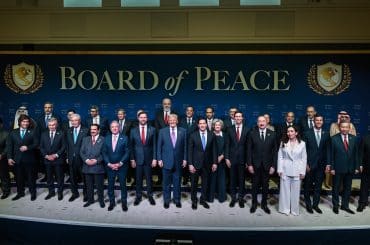In “Palestine 2011,” Jeff Halper says the peace process has failed: “There will be no negotiated settlement, period.” And he imagines two outcomes in the next year, one being that the Palestinians declaring a state unilaterally, the other being more catastrophic/lytic. (Thanks to Hazel Kahan.)
I’m optimistic that 2011 will witness a game-changing “break” that will create a new set of circumstances in which a just peace is possible. That jolt which smashes the present dead-end paradigm must come from outside the present “process.” It can take one of two forms….
[Unilateral declaration of a state], while still possible given the deadlock in negotiations, is unlikely, if only because the leadership of the Palestinian Authority lacks the courage to undertake such a bold initiative. A second one seems more likely: in 2011, the Palestinian Authority will either resign or collapse, throwing the Occupation back on the lap of Israel. Given the deadlock in negotiations, I can’t see the PA lasting even until August, when (sort-of) Prime Minister Salem Fayyad expects the international community to give the Palestinians a state.
Even if the 90-day settlement freeze eventually comes into effect, Netanyahu will not negotiate borders during that period, the only issue worth discussing. Either fed up to the point of resigning – Abbas may be weak and pliable, but he is not a collaborator – or having lost so much credibility with its own people that it simply collapses, the fall of the PA would end definitively the present “process.”
The end or fall of the PA would create an intolerable and unsustainable situation. Israel would be forced to retake by force all the Occupied Territories, and unable to allow Hamas to step into the vacuum, would have to do so violently, perhaps even invading Gaza again and assuming permanent control. Having to support four million impoverished Palestinians with no economic infrastructure whatsoever would be an impossible burden (and hopefully the “donor community” would not enable the re-occupation by stepping in to prevent a “humanitarian crisis,” as it does today). Such a move on the part of Israel would also inflame the Muslim world and generate massive protests worldwide, again forcing the hand of the international community. Looked at in this way, the Palestinians have one source of enormous clout: they are the gatekeepers. Until they – the Palestinian people as a whole, not the PA – say the conflict is over, it’s not over. Israel and its erstwhile allies have the ability to make life almost unbearable for the Palestinians, but they cannot impose apartheid or warehousing. We, the millions supporting the Palestinian struggle the world over, will not let it go until the Palestinians signal that they have arrived at a settlement that they can live with. Until then, the conflict will remain open and globally disruptive.
If any of these scenarios comes about and new possibilities of peace arise out of the violence and chaos that will ensue, the real question is: where will we be, the people who support a just, inclusive, workable and sustainable peace? Here in Israel/Palestine, unfortunately, there is no discussion over what may happen in the next year. Not only do we of the Palestinian and Israeli peace movements fail to give adequate direction and leadership to our civil society allies abroad, we tend to pursue “politics as normal” disconnected from the political processes around us, more reactive than pro-active. Despite its crucial importance to the Palestinian struggle, for instance, the BDS campaign moves along and accumulates strength, but is not accompanied by focused, timely campaigns intended to seize a political moment. …

